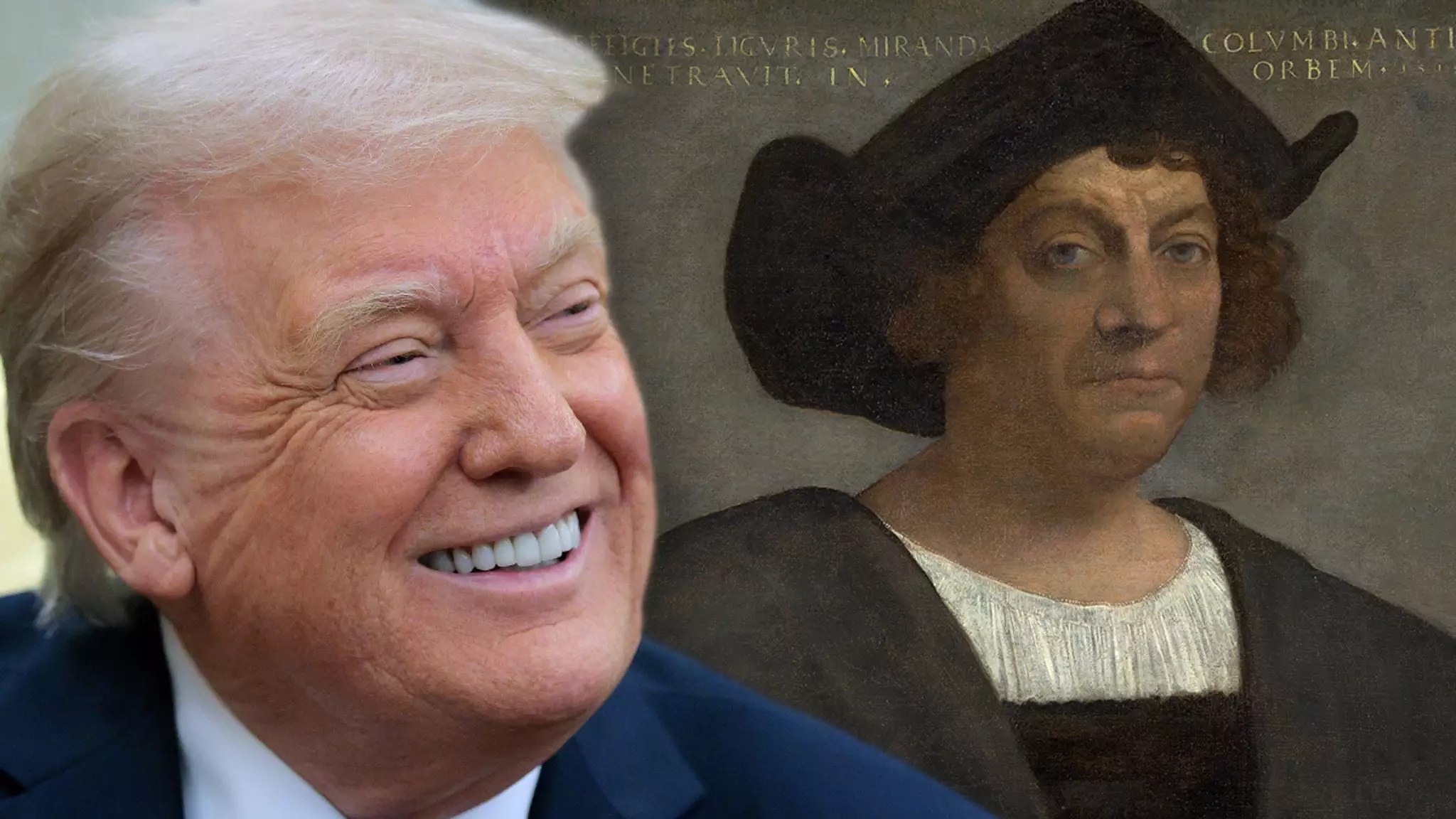In recent statements, Donald Trump expressed his fervent desire to rehabilitate the legacy of Christopher Columbus, positioning himself as a champion of Italian heritage. This initiative comes in the wake of heightened scrutiny over colonial figures, suggesting a deep-seated cultural battle between opposing political ideologies. Trump’s announcement on Truth Social emphasizes his frustrations with the Democrats, whom he accuses of dismantling Columbus’s reputation. The former president posits that the past few years have seen Columbus transformed from hero to villain, particularly amid the social upheaval that followed the murder of George Floyd. But is this movement merely political theater, or is it a genuine effort to reclaim an emblematic figure of history?
The Columbus Conundrum
Columbus’s legacy is undeniably complicated. Celebrated for his navigational feats, he is also vilified for the violent colonization that ensued in the Americas. Amid ongoing debates surrounding race, social justice, and historical reckoning, the reaction to Columbus has been divisive. While many rally behind Trump’s call to honor Columbus, others urge a reflective approach that recognizes the broader consequences of his expeditions. Trump’s narrative of epic redemption seems to obscure these critical discussions, suggesting that his primary concern is not the intricate truths of history but the mobilization of a base that feels victimized by what they view as an attack on American values.
Political Opportunism or Cultural Revival?
Trump’s vow to “bring Columbus Day back from the ashes” can be interpreted as a rallying cry to appease a demographic that perceives changes in cultural narratives as an affront to their identity. The team’s revival of this holiday reflects an acute awareness of the growing sensitivity around historical grievances, especially as some locales have shifted to Indigenous Peoples’ Day as a counter-narrative. By resurrecting Columbus Day with its traditional significance, Trump is attempting to cement a sense of community among Italian-Americans while simultaneously deriding “woke” culture that challenges historical narratives.
Though Columbus Day remains a federal holiday, its observance is crumbling in certain areas. This nuanced shift raises questions about Trump’s intentions: is he genuinely advocating for recognition, or simply utilizing Columbus as a symbol in his ongoing fight against perceived liberal overreach? The lack of clarity about what “bringing back” the holiday means invites speculation that this commitment may be largely performative, serving to galvanize supporters rather than effect substantial change.
The Spectacle of Columbus
Anticipation grows about how Trump will imbue Columbus Day with new significance. There is a palpable eagerness for the pageantry that may come with his revival efforts—a proclamation or a parade showcasing Columbus’ “heroic” legacy. Such extravagance could serve as a reflective moment in history, but could also morph into a showcase of political theatrics that oversimplifies a complex figure. The challenges at hand require us not only to remember Columbus but to critically engage with the realities of his actions and their lasting repercussions, a task Trump’s narrative seemingly sidesteps.
In maintenance of divisive rhetoric, the clash over Columbus lore is emblematic of larger ideological battles seen throughout American political discourse. Rather than bringing reconciliation, such politicization may further entrench the divides that already permeate discussions of race, history, and national identity. Perhaps, in revisiting Columbus, we should grapple with the uncomfortable truths embedded in the past rather than simply resurrecting a legacy devoid of its consequences.







Leave a Reply